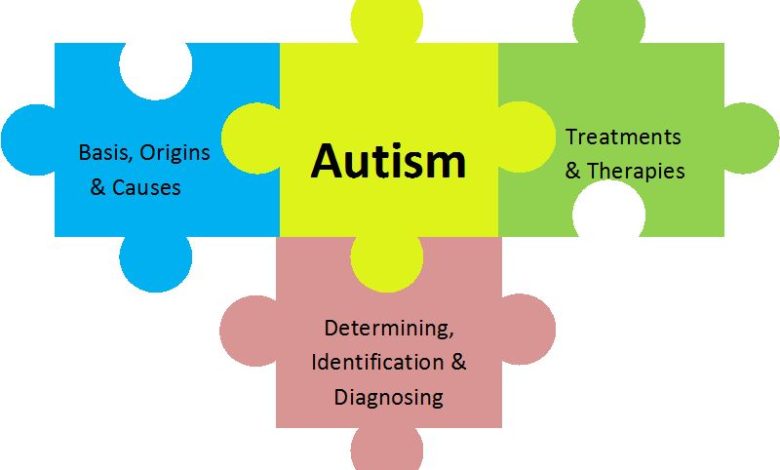The Role of Genetics in Autism Spectrum Disorder: A Comprehensive Overview

Autism Spectrum Disorder (ASD) is a multifaceted neurodevelopmental condition with diverse effects on individuals. It impacts social interaction, communication skills, and behaviour. For many years, researchers have been exploring the underlying causes of ASD, and one area of significant interest is genetics.
Understanding the genetic factors contributing to ASD can provide valuable insights into its development and pave the way for more effective early interventions and personalized treatments. In this article, we will delve into the relationship between Autism Spectrum Disorder and genetics.
What is autism spectrum disorder?
Autism Spectrum Disorder (ASD) is an intricate developmental condition where individuals may face difficulties in socializing, and communicating, and may engage in repetitive behaviours. It affects individuals across a wide spectrum, with varying levels of severity and unique strengths.ASD is not a single disorder but rather encompasses a range of conditions that share similar characteristics.
These can include difficulties in verbal and non-verbal communication, impaired social interaction and understanding of emotions, repetitive behaviour patterns, sensory sensitivities, and intense focus on specific interests. The diagnosis of ASD is based on the presence of certain behavioural patterns observed during early childhood.
What causes autism spectrum disorder?
While there is no singular identifiable cause, it is widely accepted that ASD arises from a combination of genetic and environmental factors. Genetic predisposition plays a significant role in the development of ASD, with various genes implicated in its manifestation. However, it is important to note that not all cases of ASD can be solely attributed to genetics.
Studies have indicated that certain genetic mutations and variations can increase the likelihood of developing ASD. These genetic changes may affect how brain cells communicate or develop, thereby influencing social interaction, communication skills, and repetitive behaviours often exhibited by individuals with ASD.
Furthermore, rare inherited genetic conditions such as Fragile X syndrome and Rett syndrome have been associated with an increased risk of developing autism. It is essential to recognize that genetics alone cannot account for the complete understanding of ASD. Environmental factors also play a crucial role in shaping its expression.
Prenatal conditions such as maternal infections during pregnancy or maternal exposure to certain drugs or chemicals have been linked to an increased risk of ASD development. Additionally, complications during pregnancy or birth and exposure to air pollution may contribute towards the development of this neurodevelopmental disorder.
Why is the family health history of autism spectrum disorder important?
By examining the medical backgrounds of individuals within a family, healthcare professionals and researchers can identify patterns and potential risk factors associated with ASD. Gaining insight into the family health history allows for a comprehensive assessment of genetic predispositions and potential environmental triggers that may contribute to ASD.
By identifying shared traits or conditions among family members, scientists can explore potential genetic links and markers associated with autism. This information assists in developing targeted therapies, and personalized interventions, and empowering families with resources to better manage their child’s condition.
Moreover, understanding the familial aspect of ASD aids in dispelling misconceptions and reducing the stigma surrounding this neurodevelopmental disorder. When families become aware that autism has a basis in genetics rather than being solely attributed to parenting or external factors, it promotes acceptance and empathy within society.
Genetic testing and ASD
Genetic testing plays a crucial role in the diagnosis of Autism Spectrum Disorder (ASD). By analyzing an individual’s genetic makeup, scientists can uncover potential genetic abnormalities that may contribute to the development of ASD. This diagnostic approach offers hope for families affected by ASD, as it provides valuable insights into the underlying causes of the condition.
One key advantage of genetic testing is its ability to identify specific genetic variants associated with ASD. Through advanced techniques such as whole exome sequencing or chromosomal microarray analysis, researchers can detect mutations or alterations in genes linked to neurodevelopmental disorders. This precise identification enables earlier diagnosis and personalized treatment strategies tailored to an individual’s unique genetic profile.
Furthermore, genetic testing plays a crucial role in understanding the inheritance patterns of ASD. By studying familial history and conducting gene sequencing across generations, researchers can unravel the complex interplay between inherited factors and de novo mutations. This knowledge empowers families by providing them with a deeper comprehension of their loved one’s condition and helps them make informed decisions regarding family planning.
Conclusion
In conclusion, advancements in genetic testing have opened doors to earlier diagnosis and personalized therapies, providing hope for individuals with ASD and their families. As research in this field continues to progress, we can look forward to a future where a deeper understanding of the genetic underpinnings of ASD leads to improved outcomes and a more inclusive society for all.




